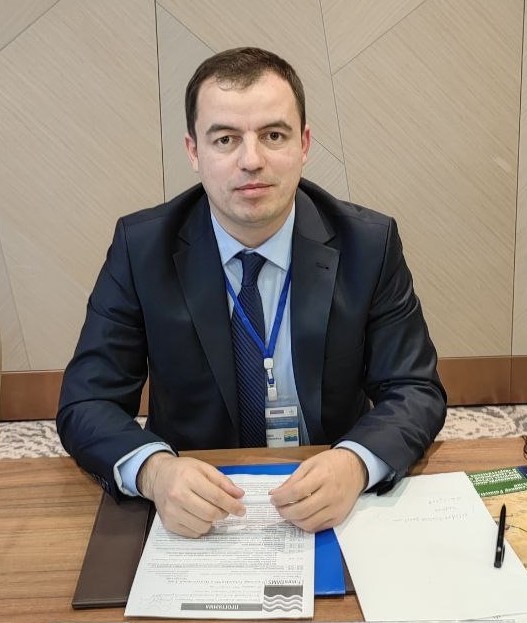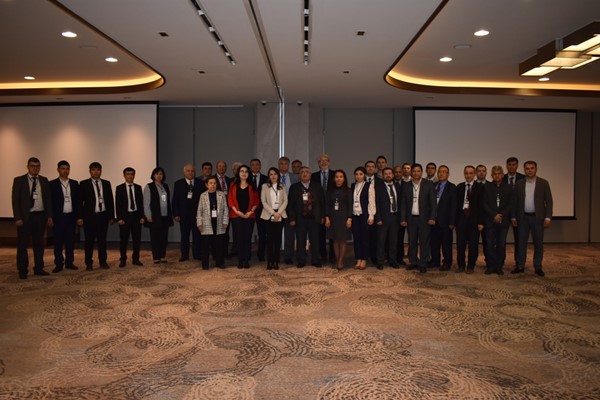Water-energy-food and environment interactions in the Amu Darya River Basin in Central Asia

Dr. Aminjon Gulakhmadov from Tajikistan is currently a CAS PIFI postdoctoral fellow at the Xinjiang Institute of Ecology and Geography (XIEG), Chinese Academy of Sciences (CAS). He came to XIEG from the Ministry of Energy and Water Resources of the Republic of Tajikistan. On March 28, 2022, in Tashkent, Uzbekistan, Dr. Aminjon took part as a speaker at the conference “New joint approaches and tools to study the growing trend of water-energy-food and environment interactions in the Amu Darya River Basin”, which was organized by the International Water Management Institute (IWMI, Representative Office in Uzbekistan), together with the University of Manchester, United Kingdom.

In recent years, Dr. Aminjon has established research cooperation with the Central Asian Ecology and Environment Research Center of CAS due to the opportunity of joint research on water resources between China and Tajikistan. He participated in scientific research projects such as the Pan-Third Pole and Natural Science Foundation and was awarded the PIFI scholarship. Supervised by Professor Chen Xi, Dr. Aminjon mainly deals with climate change issues and his research is related to the assessment of hydrological and water resources of the key rivers of Tajikistan. Dr. Aminjon focused on the scientific issues of sustainable development of water resources and water energy in Tajikistan and their implications for the environmental security of Central Asia and downstream countries in response to the current lack of scientific support for decision-making in the management of water resources in Tajikistan, and achieved some results through cooperation with Chinese scientists. To a certain extent, the scientific and technical level of water management in Tajikistan has been improved.
His vast experience allows him to participate in this high-level conference to share his experience. It should be noted that the Central Asian region needs to develop plans and implement them to mitigate the effects of climate change and develop a sustainable development program to achieve the UN Sustainable Development Goals. Dr. Aminjon, as an international water and energy expert, was asked to share his thoughts on how the Python Water Resources model (http://hydra.org.uk/network/36592 and www.waterstrategy.org) could be improved to meet the above needs. The high-level participants shared their thoughts on how to further promote and institutionalize the application of the Python Water Resources model in the Amu Darya River Basin and identified potential actions to further improve the model and scale it up to potentially cover the entire Aral Sea Basin. Dr. Aminjon pointed out his thoughts on this regard and he also mentioned that the researchers from the Xinjiang Institute of Ecology and Geography conducted a series of studies on the integrated assessment and sustainable development of water-energy-food-ecology systems in Central Asia.

As noted at the conference, the University of Manchester and IWMI have developed a range of modeling tools and frameworks to support the planning and implementation of water, energy, food and environment programs through a project called FutureDAMS (Design and Assessment of water-energy-food-environment Mega Systems) supported and funded by the Foreign, Commonwealth and Development Office (FCDO) and the UK Government. Dr. Aminjon mentioned that the experience of a researcher from the Xinjiang Institute of Ecology and Geography can be used to improve and expand the Python Water Resource Model and its implementation in the Amu Darya River Basin and it will provide an opportunity to open a new page of cooperation between the Xinjiang Institute of Ecology and Geography, the University of Manchester and IWMI.
- Appendix
-



